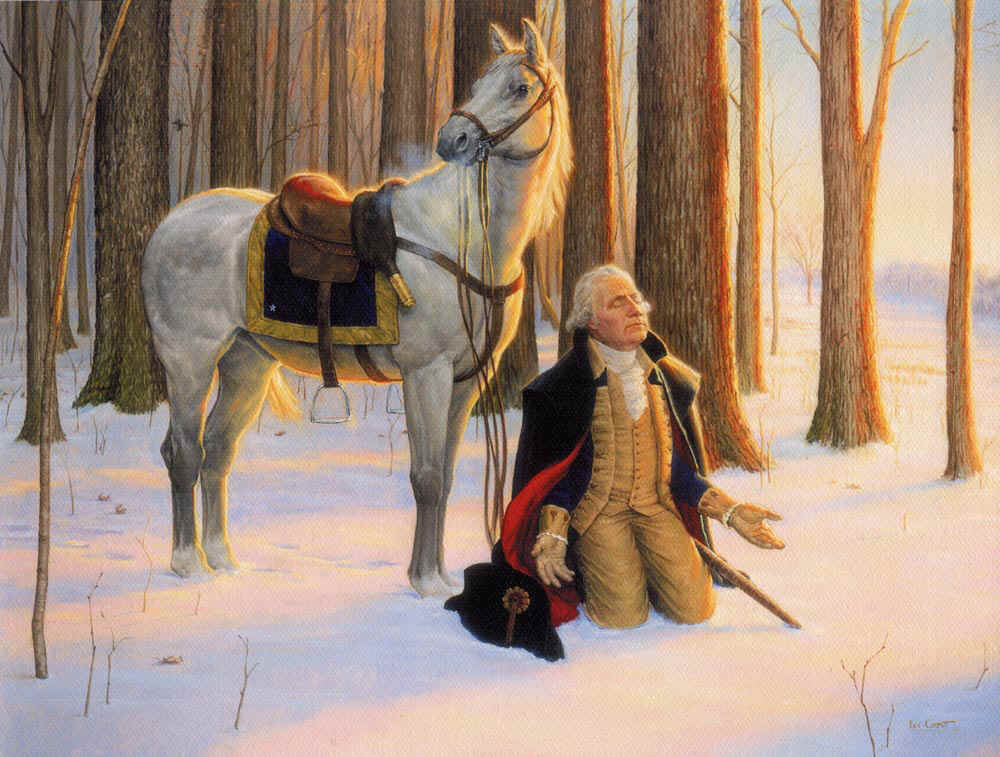I realize this will probably date me, but I sincerely enjoyed a popular radio feature by Paul Harvey called, “The Rest of the Story.” I assume some reading this post today also remember it.
For generations, the venerable radio commentator, who passed away in 2009 at the age of 90, told a little known story about a well-known person or event, only revealing the subject of the story at the end of the feature. It provided a fresh perspective on the familiar and was one of the most popular radio features in 20th Century America.
For Christian authors, there is always a deeper story than the one on the surface. In fact, a writer with a Christian perspective usually explores several layers deeper than a writer without it.
First, there is a story, then the hidden and unknown “rest of the story,” and then a much deeper perspective, the one of how God worked to create an outcome much different than what it would have been otherwise.
It’s the deeper story.
The appeal of Christian books is about this deeper story. Fiction or non-fiction, the compelling aspect will be one level deeper than most other books without it.
The wider world of books might tell a great tale about a person who helps refugees in a dangerous part of the world.
An insightful writer would add the rest of the story, about how the person gave up a lucrative medical practice to do the work.
But it is the Christian author adding the deeper story about God working throughout to inspire, direct and sustain in the difficult work.
Publishers of books without a Christian message would tell the first two parts and more often avoid the last part, probably because it might offend a reader or maybe they simply do not understand it.
But Christians know without the deeper story, the other parts would never happen.
Avoiding the deeper story is intentionally leaving out the most important part, hoping a reader would draw their own correct conclusions.
This explains the deep divide between Christian-themed books and broader market books. Leaving out the spiritual changes the story. Was it just a humanist struggle for meaning and purpose?
Maybe on a certain level, this approach of leaving out the deeper story appeals to some people. After all, the deeper story is often uncomfortable because it’s not about us, especially if a book is attempting to prove how a certain hero is so smart, strong and capable. After all, smart, strong and capable people don’t need God’s help. Right?
The ability to write this deeper story usually tracks with age, experience and spiritual maturity.
A grade school student might write a paper about George Washington and the winter at Valley Forge with names, dates and a list of troubles experienced by the colonial army.
By high school or college, the same student would add the rest of the story with some of the human element of the struggle, emphasizing the commitment to a common goal, which sustained the soldiers.
Later in life, the writer might explore the deeper story with depictions of the future first President agonizing alone in the woods just outside the camp praying for guidance and strength, wondering what a person in leadership in such a dire circumstance might actually pray and what Scriptures might have been most inspiring.
The deeper story is always the part where the reader slows down the reading pace and maybe re-reads a section, pondering the meaning. Often, the deeper story can help a reader remember the less-deep details more because the story is now multi-faceted and far more interesting.
So, always tell great stories and don’t forget to tell the rest of the story with information most people don’t know already. But then keep going and tell the deeper story. It’s what makes the Christian author unique and honestly, a lot more real.



 Audio, Audio, Wherefore Art Thou Audio?
Audio, Audio, Wherefore Art Thou Audio?

Thank you, Dan, for this perspective.
I loved Paul Harvey and his straight-faced delivery of “the rest of the story”. And I could see a little grin that punctuated the end of that message – not smug, or self-satisfied, but the glimmer of a grin of discovery.
Thank you for reminding us that we need to go deeper – that there is a spiritual battle going on with each battle we fight.
We need to remember this.
Thanks, Dan, and I agree absolutely. It IS the job of any honest writer to paint as full and deep a picture as possible; the phrase, “the truth, the whole truth, and nothing but the truth” comes to mind.
That’s a beautiful picture of Washington at prayer.
And I also loved Paul Harvey.
Reading this I had to chuckle with fond memories of an awesome example by C.S. Lewis in THE LION, THE WITCH AND THE WARDROBE. The beauty of it is that he came right out and wrote about the “deeper magic” that the White Witch was unable to know or understand. Why this is an obvious allegory to God’s plan of salvation it really does stand out as exactly how I interpret your words here. It brings about a deeper, multi-faceted story and Lewis was utterly unabashed to exploit that, and through his example we see the layers in the sweet surprise of the cake. Thanks, Dan!
Interesting post, Dan. Thank you for this.
I think a case can be made for developing an analogy with painting – so, if I may –
Norman Rockwell painted the ‘surface’ story; he left nothing out to maintain completeness and internal consistency, but put little depth into his pieces.
John Singer Sargent’s portraits told more of the story (consider his most famous painting, ‘Madame x’) but still maintained an emotional distance.
And, finally, in Rembrandt you see the whole man, the eyes truly being the windows into a living soul.
Yes, this runs chronologically backwards! Does it mean we’re retreating from depth? I don’t know. Perhaps.
Dan,
I received great encouragement in this article. Thank you for putting it together and challenging us about the deeper story.
Terry
http://straighttalkeditor.com
The deeper story is what keeps me reading. 🙂
Dan, I totally resonate with what you’ve written here. I didn’t even start writing fiction until God put it on my heart to write novels that chronicle the transition from unbelief to faith in an emotionally engaging, conflict- and danger-driven plot. Every novel in my series is a story about human love and spiritual transformation, a story about how our faithfulness can inspire another to open his or her heart to God. Just like for real people, at least one main character’s love of Jesus is the most important factor in the hardest decisions they have to make. And just like in real life, that faithfulness comes at a cost but bears fruit worth more than any price that is paid.
I don’t know whether such honest and open presentation of the reality experienced by committed believers would ever have drawn the interest of a commercial publisher. I went indie to keep rights to support missions. But even if I hadn’t, even if I wanted a traditional contract with every fiber of my being, I could never edit out the spiritual longing and the ultimate joy of following to Jesus that fuel the main plotlines.
You are right, a good story has a deeper element, and sometimes it surprises the writer. Part of the memoir I’m writing involves trying to figure out where God was in the tough parts of my life, incest/rape by my father, etc. I was angry at God’s unanswered questions and in my search He couldn’t answer my question without pushing me further away. Only when I was healed and realized the love of God could He give me the answer – that He was in the nots – what did NOT happen during the abuse – I did not get pregnant, did not go insane, did not get a disease from my father. A whole series of nots. Had God told me that before my healing I would have been angrier because during the abuse I wanted a can-do God. It takes courage to look for the deeper elements of God’s presence in a story, but it is worthwhile. Thank you for your column.
Thanks so much for that reminder to look deeper, Dan. I loved Paul Harvey, as well.
Thilly Thursday
Oh, how timely for my word of the day. Love, them. This is funny. OK in real life, not so much. It’s a word that will never creep into my fiction (or non-fiction), because it is snooty.
Latitudinarian.
Yep. That’s the word. This applies to a person whose religious thought has changed from Divine Authority (ie the Word of God) to sound and reasonable judgment.
How many churches fit that? I wondered why pastors have accepted Allah as equal to God. These folks are latitudinarians. Anything goes as long as it’s reasonable.
Plainly said, it’s nothing short of apostasy.
By inserting humanism into Christian fiction, the writer has become a latitudinarian (I have to keep using this word for my benefit, not to cause your fatigue in re-reading it).
To me, the Word of God is all or nothing. Your characters may be fallible but the Word of God is not. Period.